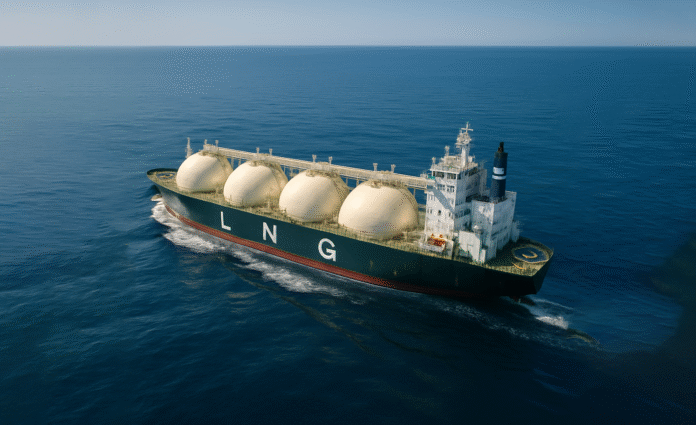CCP Warns of SOE Monopoly, Calls for Pakistan LNG Market Reforms
The Competition Commission of Pakistan (CCP) has voiced strong fear about how publicly owned enterprises seem increasingly to dominate Pakistan’s liquefied natural gas (LNG) sector. In a recently issued report entitled “State of Competition in the LNG Sector in Pakistan,” the CCP shows how little private sector involvement and obstacles to regulation are breaking down market competition and efficiency in Pakistan’s power industry, as well as denting investor confidence.
State-Owned Control in the LNG Sector and Pakistan LNG Market Reforms
The report discloses Pakistan’s main State-owned Enterprises: Pakistan LNG Limited (PLL) and Pakistan State Oil (PSO). These companies dominate every critical juncture point in this vertical-seemingly never-ending chain of value, from import and storage to retail. They control huge tracts with the support of government guarantees and financial backing of every social group or sector. This has created a structure that provides little room for private enterprise.
The CCP says that high capital costs and the difficulty for independent operators to gain access to infrastructure make them uncompetitive. Dependence on SOEs also has “knock-on” effects.it stifles innovation, plus it results in supply inefficiencies and higher consumer prices that affect two industries at the same time.
The Growing Circular Debt Crisis and Need for Pakistan LNG Market Reforms
The report also cites the mounting circular debt in the power sector, which reached Rs 2,866 billion by January 2024. This surging debt is attributable largely to delayed tariff revisions, property management loopholes, and off-the-record gas (UFG) red ink.
Further, the use of re-gasified LNG (RLNG) for domestic consumers in winter — which is only meant to alleviate a public shortage, pushes up the cost on importers and can shake financial stability. It could be foreseen that unless structural reforms are made in future these problems will dissuade the private sector from entering and weigh even heavier on the people’s burden.
Institutions such as the Competition Commission of Pakistan think structural reforms are necessary to solve these problems before they become entrenched.
Lack of Transparency and Biased Decision-Making in Pakistan LNG Market Reforms
The report also criticized those unconditionally brave ladies who reported their plights to the media, in particular the internationally known company that offered them compensation. And these state-controlled companies, in that the leaders of Sui Southern Gas Company Limited (SSGCL) and Sui Northern Gas Pipelines Limited (SNGPL) were civil servants when they approved projects or made decisions; else those related directors outright incurred through financial courts to favor state-owned enterprises over private investors are both cause for concern.
This internal competence concentration creates small chunks of monopoly and has outletting effect to potential competition. Eventually, Pakistan-owned regasification terminals slip into the ocean.
Structural Barriers Limiting Private Entry in Pakistan LNG Market Reforms
The CCP has identified a variety of structures and regulations that pose obstacles to private sector involvement in the current LNG market.
- At every level of supply, SOEs hold a monopoly.
- They are big and tough, not necessarily the best solution to the problem.
- Limited access to oil stations or pipelines can handicap fair competition.
This is why Third-Party Access (TPA) rules are needed, to make sure all players have an equal chance of getting in on the game. These handicaps have left many private investors wary of entering the market at all. It’s a state market now.
CCP’s Proposed Reforms for a Competitive Pakistan LNG Market
To solve these systemic problems, the CCP proposes a variety of reforms which would allow Pakistan’s LNG market to be more competitive, transparent, and sustainable.
One-Stop-Shop for LNG Imports
Clearing imports into a unified platform can simplify the bureaucratic process and stimulate private investment.
Accelerate Third-Party Access (TPA) Policies
If TPA principles are implemented, private companies will have the right to use existing LNG infrastructure on a fair and equitable basis.
Unbundle Delivery and Distribution Functions
The CCP demands that SNGPL and SSGCL be separated to eliminate conflicts of interest and improve efficiency.
Amendment of the OGRA Ordinance, 2002
Modernizing Pakistan’s energy laws would align them with global market practices and ensure regulatory independence.
Reduce UFG Losses and Improve Demand Forecasting
Better loss control and accurate forecasts will make systems more reliable and minimize financial inefficiencies.
The CCP points out that Japan’s Gas Business Act (2015) enabled Japan to successfully liberalize its gas sector by blending competition with consumer protection, a model Pakistan could follow.
Encouraging Transparency and Private Sector Confidence in Pakistan LNG Market Reforms
Its reform might be able to build investor confidence and bring foreign partners to work with it in a reasonable way. A competitive market for LNGs would bring down costs and raise levels of innovation. This would help reach long-term goals concerning secure power supplies for the future.
Furthermore, eliminating monopoly control means that independent energy firms will have chances to participate in national development. Diversifying the energy mix is essential for sustainable growth.
The Way Forward for Pakistan LNG Market Reforms
Think for a moment, even though a country may be populous and rich, it is on the point of ruin when the people face scarcity and financial strain.
The Commission’s three powerful policy proposals, fair competition, investment reform, and private sector inclusion, together make up a strategic blueprint for the future legal framework.
In this way, if adopted to practical effect, it is likely that Pakistan will yield a thriving and transparent LNG market. There will be no chance of deception or malfeasance such as tragically marred its early days.



